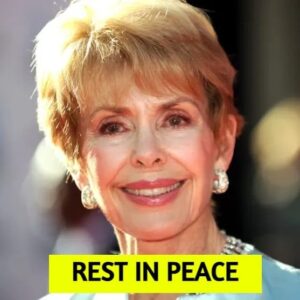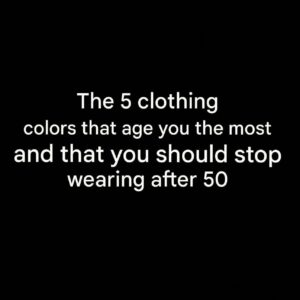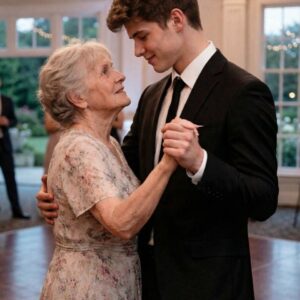Rachel Maddow never imagined she’d one day become one of the most recognizable faces on American cable television. Known for her intellect, dry wit, and deeply researched monologues, Maddow has become a staple in U.S. political commentary. But her path to broadcast journalism was anything but traditional.
Born on April 1, 1973, in Castro Valley, California, Maddow grew up in a suburban, middle-class family. Her childhood home was politically moderate; her parents, while registered Democrats, voted for Ronald Reagan. Instead of bedtime stories, Maddow devoured newspapers and her father’s law school textbooks. Her academic excellence propelled her to Stanford University, where she studied public policy and came out as gay during her freshman year — an act of courage at a time when LGBTQ visibility was far less common.
While at Stanford, she was admired for her intellect and activism. She researched changing perceptions of AIDS, a topic that would go on to shape much of her early adult life. After graduation, Maddow devoted herself to advocacy, working with organizations like ACT UP and the AIDS Legal Referral Panel. For a year, she served as a prison AIDS activist in San Francisco, confronting the epidemic’s grim realities and fighting for humane treatment of marginalized patients.
In 1995, she was awarded a Rhodes Scholarship, becoming the first openly gay American woman to receive the honor. She pursued her doctorate at Oxford University, focusing on HIV/AIDS and health care in prison systems. Despite her academic success, Maddow was unsure of her future. Friends expected she would become a professor or lifelong activist. But fate had other plans.
To make ends meet while finishing her dissertation in Massachusetts, Maddow took on various odd jobs — including yard work and coffee factory labor. One day, she saw a flyer for an open audition at a local radio station and decided to give it a try. Her deep, confident voice and natural ability to explain complex topics won her the position. She became the sidekick on a morning radio show — her first step into the world of broadcasting.
What started as a side gig quickly became a career. Maddow moved up the ranks, landing a co-hosting role on Unfiltered, a radio show on the newly launched Air America alongside Chuck D and Lizz Winstead. There, she solidified her reputation as a “smiling but obstinate liberal,” delivering political commentary with precision and humor.
In the mid-2000s, Maddow transitioned to television, appearing as a guest commentator on CNN and MSNBC. Her appearances — often alongside conservative pundits like Tucker Carlson — were memorable not for aggression but for her calm, analytical demeanor. She didn’t shout or interrupt. She challenged ideas with evidence and civility.

It was this unique style that caught the attention of MSNBC executives. In 2008, Maddow was offered her own show, The Rachel Maddow Show, becoming the first openly gay person to host a prime-time news program in the U.S. In its first month, her show outperformed CNN’s Larry King in the same time slot — a shocking feat for a network still finding its identity.
Unlike many other cable hosts who leaned into personal theatrics or confrontation, Maddow offered viewers a different experience. She opened each show with a lengthy, meticulously crafted monologue that combined storytelling, history, and policy analysis. Her goal wasn’t to shout louder — it was to dig deeper.
Off camera, Maddow lives a relatively private life with her partner, artist Susan Mikula. The couple met when Maddow applied to do yard work at Mikula’s home. They’ve been together since 1999 and split their time between New York City and a quiet farmhouse in Massachusetts.
Maddow has also written two books: Drift: The Unmooring of American Military Power, a New York Times bestseller that examined the shift in U.S. military policy, and Blowout, which explores the political power of the oil and gas industry and its impact on democracy.
Throughout her career, Maddow has remained grounded in her outsider identity. She once said, “Before I was the unlikely cable news host, I was the unlikely Rhodes scholar. And before that, I was the unlikely kid who got into Stanford.” Her self-awareness and commitment to substance over spectacle have won her both loyal viewers and critical acclaim.
Her influence is undeniable. During the Trump presidency, Maddow became a key figure for millions of Americans trying to make sense of the chaos in Washington. Her segments on the Russia investigation and other high-stakes issues often set the tone for national conversation. Politicians vie for airtime on her show, recognizing the platform’s power.

And yet, despite her fame, Maddow still refers to herself as “the hermit of Rockefeller Center.” She rarely appears at industry events and avoids the political cocktail circuit, preferring to spend her time writing, fishing, or researching vintage cocktails — a beloved hobby.
Rachel Maddow’s journey from activist to anchor was never part of the plan. But through a combination of talent, curiosity, and conviction, she’s become a singular voice in American media — one that proves you don’t have to follow the expected path to lead the conversation.





